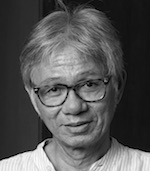 If you can bring yourself to believe Rodrigo Duterte – which is proving more and and more difficult to do because he’s proving himself more and more unstable – this nation has been condemned to poverty.
If you can bring yourself to believe Rodrigo Duterte – which is proving more and and more difficult to do because he’s proving himself more and more unstable – this nation has been condemned to poverty.
Sixteen million Filipinos did in fact believe his promise to precisely deliver the nation from poverty, and in May last year gave him the decisive popular vote to lead it for the next 6 years. They believed his diagnosis of its elemental malaise – drugs – and they believed his prescription – kill.
“Until all the drug dealers and addicts are dead,” he said, “we cannot move forward.” And so, as soon as he took office in July, he sent out his police to kill – for national redemption.
Naturally, the poor, who have seen no improvement in their lot for generations, made up the majority of his supporters – they liked a quick-fix leadership, and had become so desperate they were prepared to forget that not very long ago (1972-1986) they had been set even further back under that precise sort of leadership, that of Ferdinand Marcos, an idol of Duterte’s, as it happened.
Duterte did attract some following from the definitely not poor, but it’s difficult to tell why; apparently, not unlike an audience vicariously taken with perverse theater, some of them were charmed by his aberrant character, routinely manifest in a blustery language accentuated by sexist allusions and a favorite cuss phrase. Actually a not uncommon expression, that phrase is benign, meaningless, in its common utterance, but, in Duterte’s public speechmaking, it is crisply articulated and unmistakably aimed and ill-willed: it’s a phrase that debases mothers – the pope’s own mother once got it.
In any case, Duterte’s well-heeled backers are well hedged against whatever costs his bizarre brand of presidency might bring, unlike the poor, who in fact have borne these costs. His war against drugs says it all.
Thousands of lives have been lost in this war at the hands of either the police or, in a differentiation strictly demanded by the government, “vigilantes,” although if indeed operating on their own, these vigilantes could only have been inspired as well by Duterte’s exhortations. Scarcely any among these victims were drug producers or suppliers of any consequence; they were, rather, small fry, forced by the circumstances of poverty to use and peddle drugs, yet ending up dead none the richer for it.

Duterte first asked that his war be given 3 months, then asked for 3 months more, then asked for until the end of his first year, then for until the end of his term. Having predicated the first step toward national progress on the success of his war, he was saying to not expect to see that first step taken under his leadership.
And, now, suddenly, at the end of his first year, he admits – although without the slightest hint of humility, as only may be expected of a clinically certified narcissist – that the job can’t be done in one presidential term. In other words, he can’t do it, but surely he prefers to be understood as being the only one who, given a longer term, can do it.
He says he has finally identified the root problem – no, it’s not poverty; it’s elementary geography: an archipelago of 7,100 islands, the Philippines has a coastline too long to be patrolled against the smugglers who sneak in the drugs. How Duterte’s newly learned geography lesson informs his drug-war strategy he does not say, but I imagine the issue is complicated by diplomacy: the drugs come mostly from China, and he’s afraid to antagonize China.
In the meantime, he continues to fight his war, and fight it with greater intensity but with the same dubious purpose and strategy – kill all 4 million drug dealers and users and save the nation. In merely 3 days of the week now ending, his war accounted for an average of around 25 kills a day, higher than ever. Elementary arithmetic could have shown him, too, that, at that rate under constant conditions, it will require more than 400 years to kill his 4 million and win his war.
Conceivably, anyway, greater frenzy and, consequently, more indiscriminateness attend the intensified war. A scandalous case involved 17-year-old Kian Loyd delos Santos, an 11th-grader from Caloocan City. Witnesses, their words validated by CCTV images, tell his story:
Kian happens to be in the wrong place at the wrong time. Out of curiosity, he picks up some stuff – supposedly drugs – disposed of on the run by someone eluding the police. The pursuers vent their frustration on Kian. They grab him, hand him a gun, order him to run and, as he obeys desperately, in tears, knowing for sure he’s running for his life, gun him down.
Yet Duterte’s servile police chief could find it in himself to try to be cute: he says the people should be grateful to know that, as evidenced by all those thousands of corpses, the police don’t sleep on the job.
Oh, don’t we wish they did! – Rappler.com